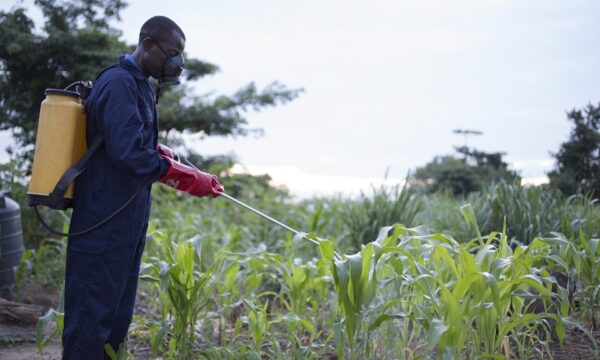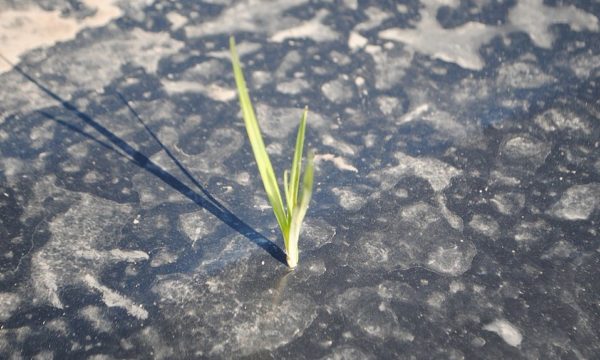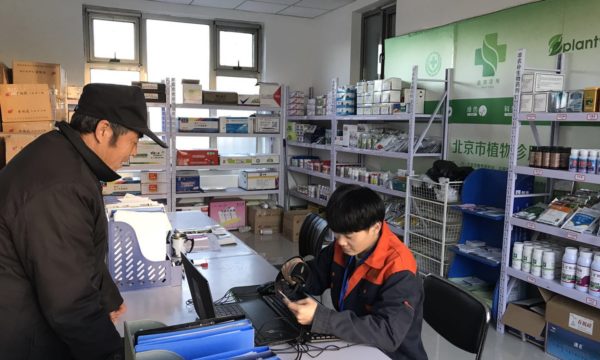The ongoing decline of pollinators has caused a global concern. Factors contributing to this decline include among others, use of pesticides, habitat destruction such as bush burning, bee diseases and pests (Colony Collapse Disorder (CCD) and Varroamite), and climate change. Research in Ghana has revealed that cocoa and oil palm production is on the decline as pesticide use increase is killing the pollinating insects. The research, carried out by entomologists and plant scientists from Kwame Nkrumah University of Science and Technology (KNUST), was presented at a seminar on pollination in Fumesua, Ghana last month (16 April).
While pollinators are important for most crops, and are just as crucial as any input in crop production, their role is often not known or are ignored all together. For example, crops such as watermelon, butternut, papaya, passion fruits, vanilla, and many others are highly dependent on pollinators for fruit set. Cocoa from which various kinds of sweet chocolates are made is pollinated by the ceratopogonid midges. The tiny pink and/or white flowers of the cocoa tree are found on the trunks and lower branches of the tree, and fewer than 5% of these flowers are pollinated. On the other hand, oil palm is pollinated by the African oil palm weevil pollinator. Hand pollination has been also used in oil palm and cocoa farms where the pollinators are absent.
In the above investigation, crop fields in Kumasi, in Ghana’s Ashanti region were sprayed with ‘conventional chemical insecticides and new insecticides made of plant extracts on farms’. Pollinator assesments over a 30-day period revealed that the population of pollinators dropped immediately. Pollinator visitation to the treated fields continued to drop and more severely so in the fields treated with chemical insecticides. “In this case the population of pollinators [visiting] each cocoa flower has been reduced because they are killed together with the pests during chemical spraying”, Peter Kwapong, Ghana national coordinator for the Global Pollination Project, said.
On the other hand, the African oil palm weevil (the pollinator for oil palm) has been introduced and commercially used with much success in oil palm producing region of Asia and later on Pacific. They reduced the dependence on assisted pollination and increased fruit set and resultant yields increased significantly making oil palm production economically viable. Today, Malaysia is one of the leading producers of oil palm in the world. Following these reports that link pesticide use and reduced population of the oil palm weevil in Ghana to reduced yields, inadvertent pesticides use in other oil palm producing countries may reduce the crop yield as well.
Although pesticide use to control insect pests and diseases is unavoidable, misuse could affect crop yield considerably. To increase the pollinator population in cocoa fields, planting of both cocoa and bananas or plantains would increase the population of pollinators. The pollinators, the midges, breed in the stagnant water which collects in the stems of plantains or bananas. “It appears that most pollinators breed within the farming environment rather [than] outside the farm. Therefore, it is better to maintain the internal conditions of the farm for immediate breeding,” said Eric Frimpong, one of the research scientist. He added that an ecosystem management approach would play a key role in management of pollinator to increase crop production.
Read more at http://allafrica.com/stories/201205190180.html : Ghana – Cocoa and Palm Oil Crop Failures Linked to Pesticides.
Related News & Blogs
Ukulima True – a Kenyan farming campaign to help reduce the risk of pesticides
As demand for food grows globally, farming practices must intensify. Farmers will need to use more low-risk tools to tackle plant pests and diseases. Pesticides are an important tool for pest management. However, they should be seen as part of a kit of…
24 August 2023





